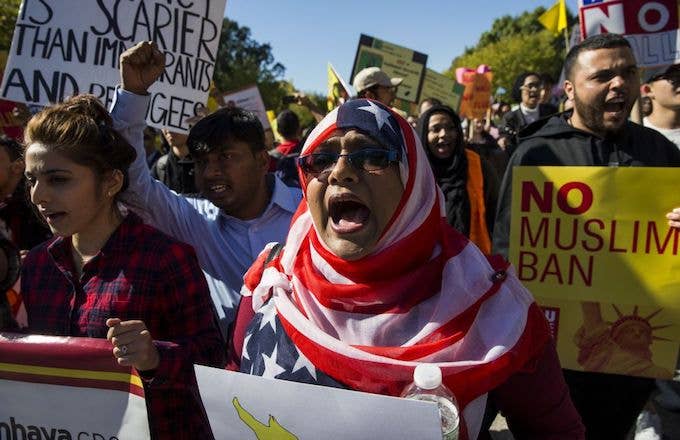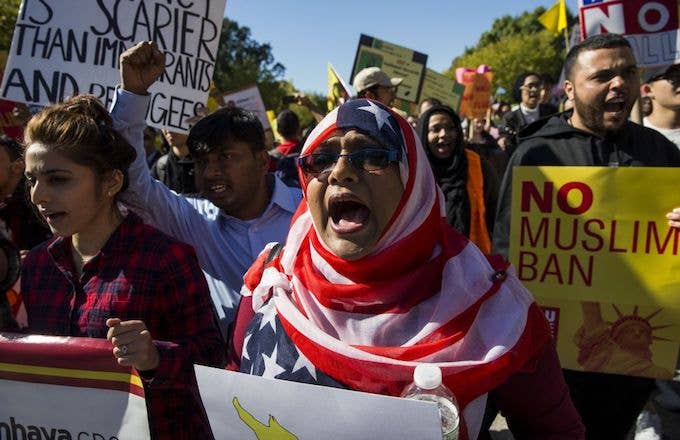
On Monday afternoon, the Supreme Court handed a big victory to Donald Trump.
The Court, minus Ruth Bader Ginsburg and Sonia Sotomayor, voted to let the most recent incarnation of Trump's controversial Muslim ban remain law while legal challenges to it continue. This third incarnation of the ban affected travelers from Chad, Iran, Libya, North Korea, Syria, Venezuela, Somalia, and Yemen.
Lower courts had previously blocked parts of the ban. Both the 9th US Circuit Court of Appeals and the 4th Circuit Court of Appeals are currently hearing cases about its legality. The Supreme Court's current decision signals they may be likely to uphold the ban in future decisions, and they may get the chance as soon as June of next year.
Trump introduced the Muslim ban only a few days after his inauguration in January, and it was met with widespread protest, most notably at airports, where many travelers' fates were uncertain. In this most recent incarnation of the ban, people from banned countries with a "bona fide" relationship with a person in the U.S. will still be allowed to come to the country. Recent cases clarified that "bona fide" includes cousins, grandparents, and other relatives.

